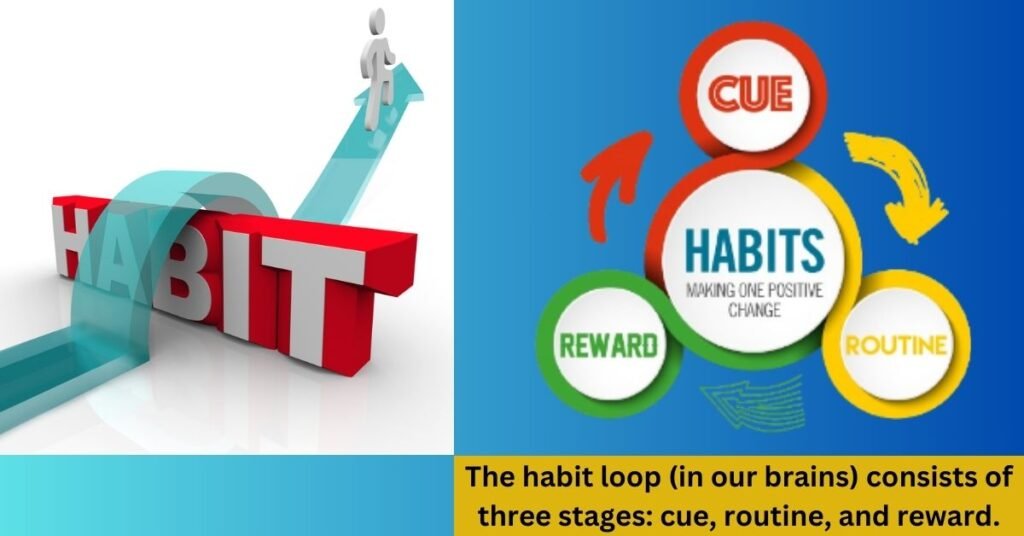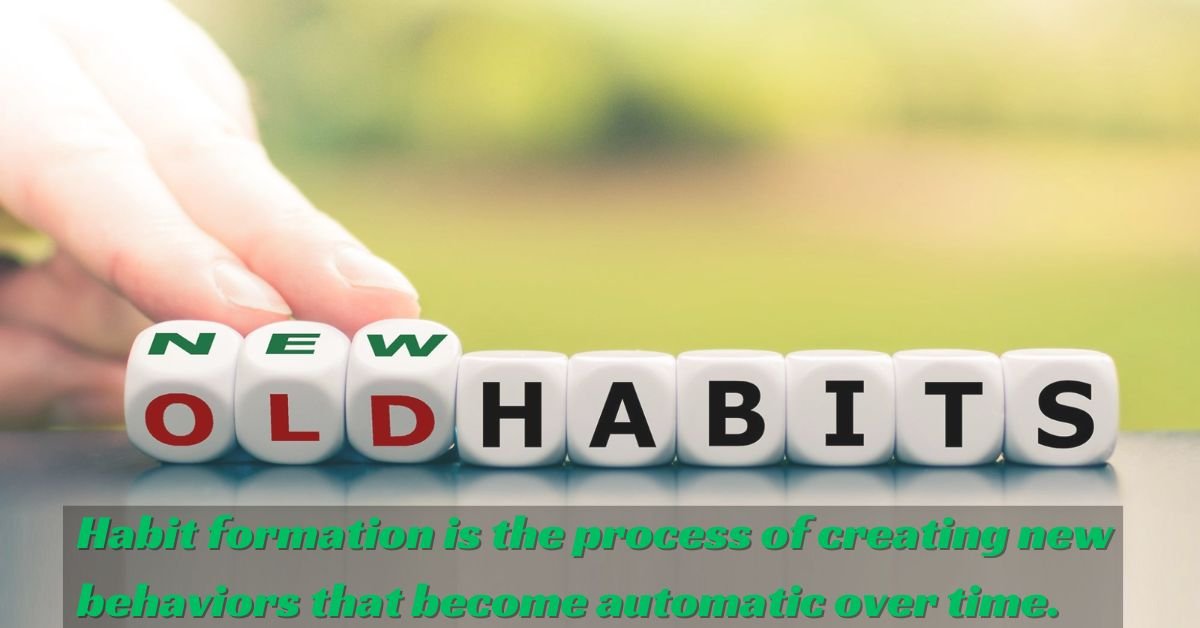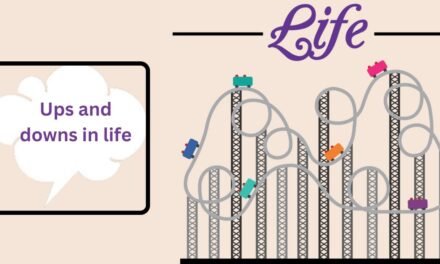Ever wonder why you brush your teeth every morning without even thinking about it? That’s the magic of habit formation! Habits are actions we repeat so often they become automatic, ingrained in our daily routines. They can be good – like that morning brushing – or bad – like mindlessly scrolling through social media.
The good news is that we can harness the power of habit formation to achieve our goals. By understanding the science behind how habits work, we can deliberately cultivate routines that improve our health, productivity, and overall well-being. Let’s dive deeper into the world of habit formation and unlock its potential for positive change!

Table of Contents
ToggleWhat is a Habit?
It is an automated behavior that we perform regularly, often with little or no conscious thought. It’s like a well-worn path in the brain. The more we repeat a specific behavior, the stronger the neural connection becomes, making it easier to perform that action in the future without deliberate planning. It can be positive, like exercising daily or meditating, or negative, like smoking or checking social media compulsively.
Why are Habits Important?
Habits play a crucial role in shaping our lives. They free up our mental space for more complex tasks. Imagine having to consciously decide to brush your teeth every morning or tie your shoes before leaving the house. Habits automate these tasks, allowing us to focus on other things. Additionally, positive habits contribute significantly to our long-term goals. Regularly exercising improves our health, while a daily meditation practice can foster inner peace and focus.

What is Habit Formation?
Habit formation is the intricate process by which a behavior becomes automatic and ingrained in our routines. It’s the transformation of a conscious action into an unconscious response, a well-worn path carved within the neural networks of our brain. Here’s a detailed breakdown of this fascinating phenomenon:
The Neurobiology of Habit Formation:
At the core lies the concept of neuroplasticity, the brain’s remarkable ability to adapt and change throughout life. When we repeatedly perform a behavior, the neural pathways associated with that action become strengthened. This strengthening involves the creation and reinforcement of synapses, the connections between brain cells. The more we repeat the behavior, the more efficient and automatic these pathways become.
Advantages of Habit Formation
Imagine you brush your teeth every morning without even thinking about it. That’s the power of habits! Habits are things you do so often that they become automatic. And guess what? There are many benefits to turning good things into habits.
One advantage is that habits make life easier. Once you have a habit, you don’t need to use willpower to do it. For example, if you have a habit of exercising every day, you just lace up your shoes and go – no struggle needed! This frees up your mind to focus on other things. Habits can also help you reach your goals. If you want to be healthier, you can create habits like eating fruits and vegetables or getting enough sleep. Over time, these habits will add up to big improvements!

Some factors that stop us from making a habit
Building habits can feel like a walk in the park… until it’s not! Sometimes, even the best intentions get snagged on a few sneaky roadblocks. Here are two big ones.
Fuzzy Goals: Imagine wanting to “get fit” but never deciding on specific exercises. It’s like aiming at a cloud! Instead, make your goal clear: “Do 20 push-ups every morning.” Now that’s a target you can hit!
Overload Overload: Trying to change everything at once is like juggling bowling balls – messy and bound to end badly. Pick one habit at a time, like mastering those push-ups. Celebrate your progress, and then you can tackle the next one!
Making things a habit can be tough sometimes! There are a couple of things that can trip us up. First, we might not be clear on what we want. If your goal is kinda fuzzy, like “write more,” it’s hard to know what exact habit to build. Instead, try setting a specific and achievable target, like “write for 5 minutes every night before bed.”
Another roadblock is feeling overloaded. Trying to change everything at once is like trying to juggle too many balls! It’s easier to pick one habit to focus on, like writing, and celebrate your wins along the way. Even if you miss a day or two, that’s okay! Just get back on track when you can. Remember, it’s about making progress, not being perfect.
The Habit Loop: A Three-Step Cycle
Habit formation can be understood through a three-step cycle known as the habit loop:
Cue:
This is the trigger that initiates the behavior. It can be internal, like a feeling of stress or boredom, or external, like the sight of your running shoes or the chime of your phone notification. Cues can be powerful; they act as a prompt, reminding the brain of the associated behavior and potential reward.
Routine:
This is the actual behavior itself, the action we take in response to the cue. It could be anything from exercising to checking social media to grabbing a sugary snack.
Reward:
This is the positive reinforcement that strengthens the association between the cue, routine, and the desired outcome. Rewards can be tangible, like the endorphin rush after a workout, or intangible, like the feeling of satisfaction from completing a task. The brain recognizes the reward and strengthens the habit loop, making it more likely to repeat the behavior when it encounters the cue again.
Making Habits Stick: Strategies for Habit Formation
Understanding the habit loop empowers us to create positive habits that stick. Here are some practical strategies you can implement:
Start Small and Specific:
Don’t overwhelm yourself by trying to change everything at once. Begin with small, achievable goals, like adding a 10-minute walk to your daily routine.
Focus on Consistency:
Repetition is key. The more consistently you perform a desired behavior, the stronger the neural connection becomes. Aim to do your new habit every day, even if it’s just for a short period.
Pair Your Habit with an Existing One:
Tie your new habit to an existing one you already perform regularly. For example, decide to meditate right after you brush your teeth in the morning.
Reward Yourself:
Celebrate your progress! When you achieve a milestone, treat yourself to something you enjoy. This positive reinforcement strengthens the habit loop.
Track Your Progress:
Seeing your progress visually can be a powerful motivator. Download a habit tracker app or use a simple chart to monitor your consistency.
Be Patient and Forgive Yourself:
Habit formation takes time. There will be setbacks along the way. Don’t get discouraged; just pick yourself up and get back on track.
Breaking Bad Habits: The Power of Replacement
Just as we can cultivate positive habits, we can also break bad ones. Here’s the key: “Replace the unwanted behavior with a more desirable one”. When faced with the cue for your bad habit, choose the new, positive behavior instead. Additionally, identify and remove triggers that make it easier to fall back into your old ways.
In how much time we can make a habit?
There’s no one-size-fits-all answer to how long it takes to form a habit. Research suggests a wide range, anywhere from 3, 7, 12, 18 to 254 days! Here’s a breakdown of the factors that influence this timeframe:
Complexity of the Habit: Simpler behaviors, like drinking a glass of water after waking up, might take less time to become automatic than complex ones, like learning a new language.
Individual Differences: People vary in their ability to form habits. Some individuals are naturally more consistent, which can accelerate the process.
Consistency: This is the key! The more frequently you repeat the desired behavior, the faster the neural connections strengthen, making it a habit.
Motivation: A strong desire to establish the habit can provide the necessary willpower to persist through initial challenges.
While the exact timeframe can vary, some studies offer reference points:
A Frequently Cited Statistic: A popular statistic suggests it takes 21 days to form a habit. However, this notion is a simplification and lacks strong scientific backing.
A More Realistic Range: Research by Phillippa Lally from University College London suggests a more realistic range of 18 to 254 days for habit formation.
The 66-Day Mark: This study also found that on average, it takes about 66 days for a new behavior to become automatic.
Remember: These are just averages. It’s more important to focus on consistency and celebrate small wins along the way. Here are some tips to solidify habits faster:
Start small and achievable. Don’t overwhelm yourself with a complex routine.
Track your progress. Seeing your consistency can be a powerful motivator.
Reward yourself for reaching milestones. Positive reinforcement strengthens the habit loop.
Forgive yourself for setbacks. Everyone slips up. Get back on track and keep going!
By understanding the factors at play and implementing these strategies, you can increase your chances of forming positive habits that stick and shape your life for the better.
Conclusion
Habit formation is a powerful tool for shaping our lives. By turning positive actions into automatic routines, we free up mental energy and willpower for other challenges. This allows us to consistently make progress towards our goals, whether it’s improving our health, developing a new skill, or simply becoming a more organized person. With a little planning and perseverance, anyone can harness the power of habit formation to build a better, more fulfilling life.
However, habit formation isn’t always a smooth journey. There will be setbacks and moments where motivation wanes. The key is to be patient and focus on making small, consistent improvements. Celebrate your victories, no matter how small, and forgive yourself for occasional slip-ups. Remember, habits are formed over time, and with dedication, even the most challenging routines can become an effortless part of your daily life.
Hey everyone! Have you ever wanted to stick to a new routine but found yourself falling back into old habits? We’ve all been there! This post dives into the amazing power of habit formation and explores some of the sneaky roadblocks that can get in our way. Let’s get started on building routines that actually stick!










Nice post. I learn something more challenging on different blogs everyday. It will always be stimulating to read content from other writers and practice a little something from their store. I’d prefer to use some with the content on my blog whether you don’t mind. Natually I’ll give you a link on your web blog. Thanks for sharing.
Great line up. We will be linking to this great article on our site. Keep up the good writing.
Some times its a pain in the ass to read what people wrote but this internet site is rattling user genial! .
I was just searching for this information for a while. After six hours of continuous Googleing, finally I got it in your website. I wonder what is the lack of Google strategy that do not rank this type of informative sites in top of the list. Generally the top sites are full of garbage.